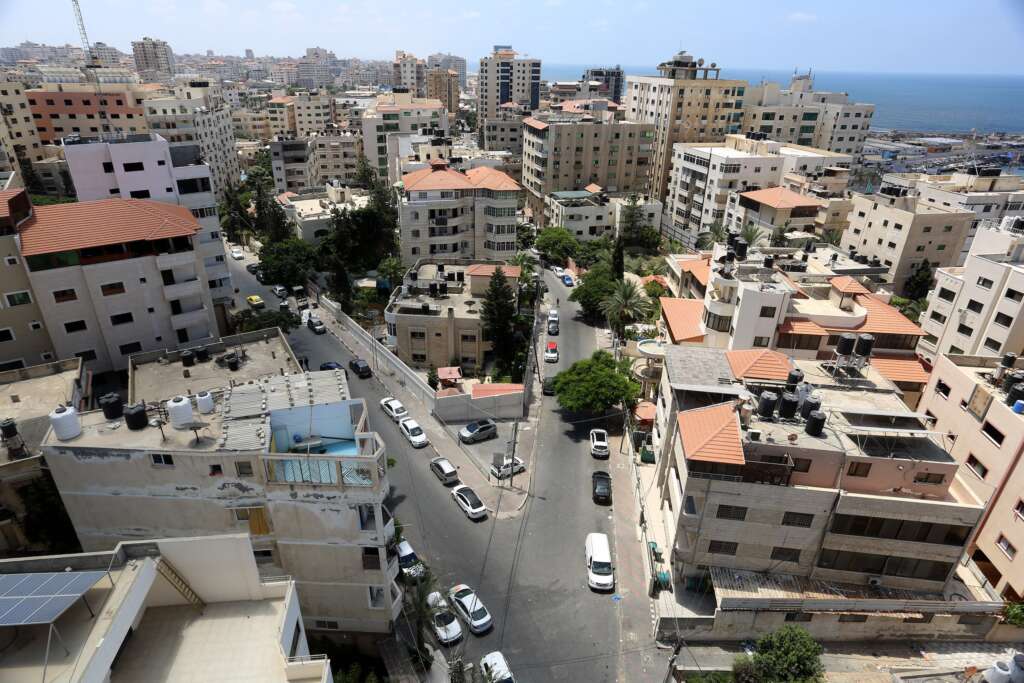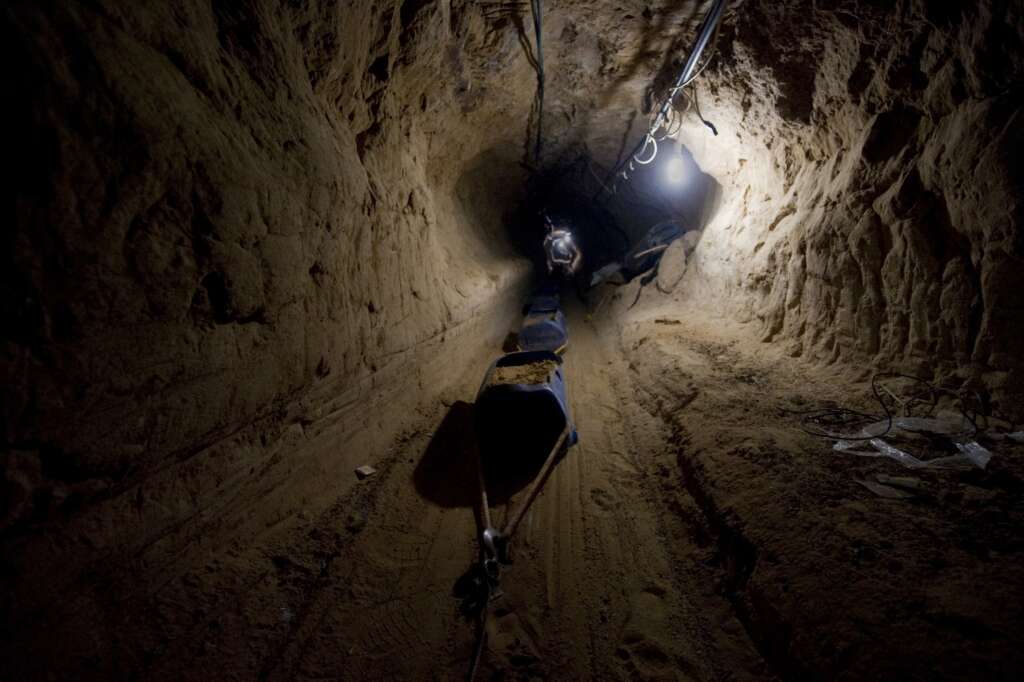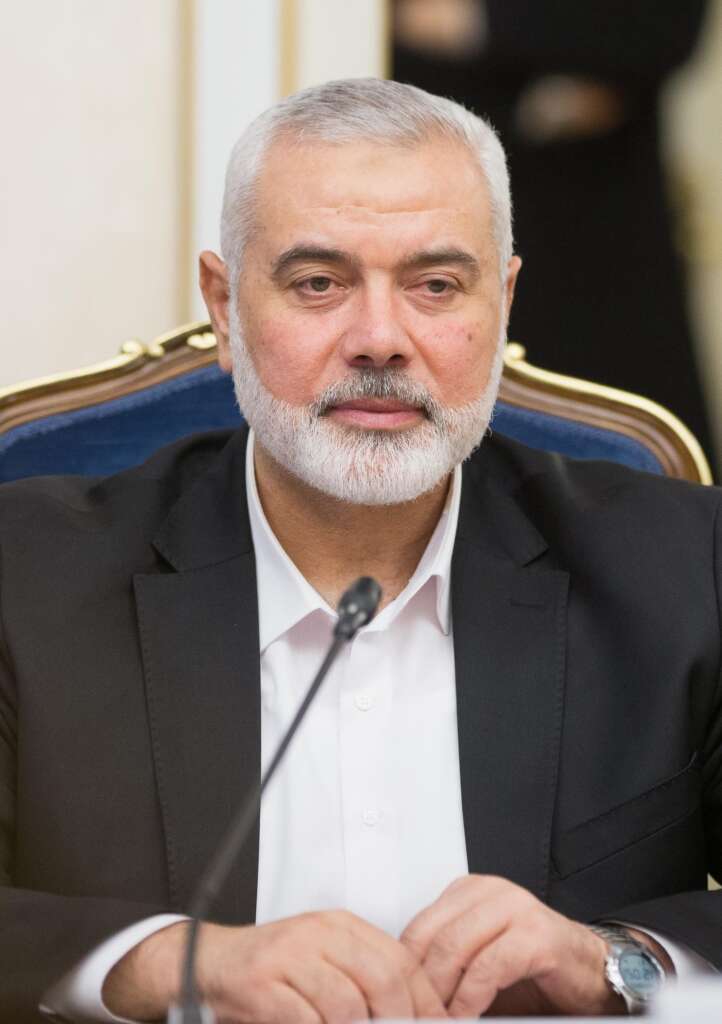The United States is being drawn to the brink of war. We didn’t plan this. Perhaps didn’t even predict it. We didn’t over react to the situation in Ukraine. Russia invaded that European country and someone had to take a stand and show some leadership along with the UK and other NATO allies. If not us, then who? Now, we have Israel. Many Israelis are U.S. citizens. Israel is the only true democracy within a thousand miles of that country. Finally, we’re currently sweating what China might do as far as Taiwan goes. The nagging question is “can we avoid war?”
We need to support Taiwan. It’s not like Taiwan is not worth defending. It’s in our national interest to keep China from swallowing up the countries and oceans around her. Taiwan is a democracy. We have treaty obligations to Taiwan who has proven to be a loyal friend to the U.S. Whether China is truly communist anymore is a matter of debate, but it is certainly a totalitarian state with nuclear missiles targeted at American cities, and no U.S. city is safe. Besides, our economy would not be able to produce cars, computers, and other consumer conveniences without the electrical components that are made in Taiwan.
On the other hand, official U.S. policy is that Taiwan belongs to China.
Now, our arsenal of freedom has been dangerously depleted. Does our material support for Israel come at the expense of our support for Ukraine? Congress could authorize a greater budget calling for increased production of war materials, except that the House of Representatives cannot agree on a leader. We can’t even get general officers promoted in the U.S. Senate except for one or two!
We now have a taskforce in place off the coast of Israel with rumors of a second one being marshalled to join it. In this post I’ll discuss this plus other facets of the current crisis in this calculus concerning the prospects for war.
Introduction
In my recent post “A two-state solution for the Levant,” I briefly discuss the background of the current crisis. After the Six-Day War in 1967, Israel kept control of the Golan Heights, the West Bank, the Gaza Strip and Jerusalem. Jerusalem, known for dozens of centuries as the “City of David” has been the heart of Jewish civilization. The Israelis likely kept control of the Golan Heights and the Gaza Strip to put some distance between Israel and its mortal enemies, one (Egypt) who has since normalized relations with Israel. Syria which has used the Golan Heights to attack Israel repeatedly has not but for many years now has had a civil war on its hands. Israel kept the West Bank at first because of its historical connection to Israel, but has since given large sections of the West Bank to the Palestinians who enjoy a limited amount of self-rule there.
Relations between Palestinians and Israelis are normally difficult, but generally not overly violent. It may seem unwise, but Israel keeps granting permission to groups of settlers to build more kibbutzim (farms) in the West Bank. The Palestinian Authority demands that they stop. Israel also condemns Arab property in East Jerusalem and repurposes it for Israeli needs. I assume the Palestinians are compensated for this, but I don’t know that for a fact. Israel does not see a problem here. One Prime Minister said that if France wanted to develop a suburb of Paris, they would not feel a need to get permission from the UN or some other higher authority. France would say “Paris belongs to France” even as Israel would say “Jerusalem belongs to Israel.” Countries have taken land from other countries when wars ended. Russia took Kaliningrad from Germany after World War II (or was it Poland?) The areas of Alsace and Lorraine have flipped back and forth repeatedly between Germany and France and so on. So, if Israel is look for a precedent here, she doesn’t have far to look.
Whenever Israel stakes a claim for a new settlement on the West Bank, whenever the Israelis bulldoze the home of a terrorist on the West Bank, whenever a Palestinian holiday occurs such as al Nachba which falls in May, or on any given Friday if the mullahs have a particularly patriotic or anti-Jewish sermon that fires up the congregation, or if the ultra-orthodox Jews rush towards the Temple Mount, themselves, there is apt to be violence, but it is usually controlled. A Palestinian deliberately runs down a pedestrian. He is shot. Al Fatah, the Palestinian faction in control of the West Bank has generally renounced he use of violence since Yassar Arafat diet. As a result, things are fairly quiet.
Stabilizing the situation
Israel was caught on its heels last Saturday. They need to regain their balance. First priority is for them to regain control of their borders. Second priority are locating the hostages and extracting them. Next, getting their 350,000 soldiers in position and preparing for a block-by-block search for Hamas militants. Another priority is for Israel to replenish the missiles for their Iron Dome defensive system (there is no reason they cannot complete two or three steps simultaneously.)
Israel is hoping that Hezbollah does not cause any problems. Once they have pacified the Gaza Strip, they will almost certainly go after Iran. They intuitively believe that Iran was involved. The U.S. at the moment does not agree.
Welcome to Gaza

Gaza is a very old city, having been founded around the fifteenth century B.C. It was in Gaza that Samson, the Old Testament character was imprisoned and met his death. It has existed under Egyptian, Philistine, Roman, Muslim, British, Israeli and Palestinian rule during that time. The last census in 2017 lists the population as 590,481 and growing rapidly. In fact, it is the largest of all Palestinian cities. Three out of four residents of Gaza City are under the age of twenty-five. Egypt has strict control over the western border of the Gaza Strip with Israel controlling marine access as well as land access in the other three direction. This is to precent smuggling of weapons, terrorists, etc. but as last weekend indicated, there is a deadly penalty when Israel loosens its grip.
Hamas (established in 1987) came to power in Gaza in 2007 following violent clashes with the Fatah Palestinian faction, which now controls the West Bank. Hamas, an authoritarian system quickly established a fairly strict Sharia governing system and turned Gaza into a platform from which to launch attacks against Israel (as they did last weekend.)
It’s clear that the Israelis intend to level Gaza. They have been warning the Garzans to leave the buildings. True, the obvious question is where would they go, but Hamas won’t let them leave their buildings. This is because the more dead and wounded Gazans there are, the greater the international pressure on Israel to stop. So, Hamas needs Muslims to die, and it doesn’t matter how they meet their death.
It should also be obvious what the mission of the three hundred thousand Israeli soldiers is. They have been tasked to go through the rubble of the Gaza Strip meter-by-meter and arrest, shoot if necessary, every member of Hamas they can find.
At that point, I would hope that Israel annexes the Strip, helps the Gazans clear the rubble, rebuild their homes so that they can live in peace. It will take an international investment, a commitment to democracy. But it will show that peace is possible if everyone lays down their weapons and their radical (deadly) ideologies.
Rescue of the hostages
The U.S. seems to have determined that they cannot launch a rescue mission. They believe that since Hamas typically separates hostages into smaller groups and hides them at different locations, it is likely that not all Americans are in the same group, making it much more problematic for a rescue. The hostages may be dead or will be killed. There is no incentive for Hamas to release them, even to save the citizens of Gaza from starvation.
The tunnels
One of the problems the Israelis will face entering the Gaza strip later today is the tunnel system under the surface and below the surroundings of Gaza City, itself. Hamas has built a tunnel system under Gaza that rivals the subway systems of many cities around the world. The tunnels are not appealing, clean and so on, but they serve their purpose well.
If, what Hamas says is true (and that is a big “if”) Hamas has over three hundred miles of tunnels in the Gaza strip, more than the London Underground has.
The tunnels are often one hundred feet below the surface, and the openings are under mosques, schools, and more commonly, in the basements of houses. Placing the entrances under mosques and schools makes it more controversial and dangerous to innocent bystanders to assault.

When the tunnels first gained widespread attention around 2005, they were used to smuggle drugs, money, people, luxury items, those things that are commonly smuggled near the borders of countries (in this case, Egypt.) This allowed the transportation of blacklisted goods or items that might have been forbidden or heavily taxed. Often, the typical (legal) movement of some items in third world countries requires hefty bribes to custom officials. Homeowners in Gaza were given a percent of the profits of smuggled goods for allowing a tunnel entrance or exit to be built in their home. Once Hamas came to power, the smuggling focused on weapons (guns, rockets, munitions and so on) and the movement of wanted terrorists. The tunnels became increasingly larger to allow Hamas members to have underground bunkers, command posts and places to hold hostages. The entrances were guarded by militia. Today’s tunnels often have electrical lighting, rail tracks to move heavy items and so on. Hamas also built tunnels to allow sappers (terrorists with satchel charges) to enter Israel and avoid the heavily fortified border crossings. For example, according to the BBC:
“It is possible that a cross-border tunnel was used by Hamas militants during last weekend’s attacks in Israel, in which at least 1,300 people were killed, most of them civilians, and more than 150 others were taken as hostages. There were reports that a tunnel exit was discovered near the kibbutz of Kfar Aza, where dozens of civilians were massacred.”
Even if there are only fifty miles of tunnels instead of three hundred miles as Hamas claims, you can imagine how difficult it would be to find the hostages assuming they are still in the tunnels. The tunnels might be bobby-trapped or might have collapsed in places from the Israeli bombardment for example. There are innumerable risks involved for Israel, the U.K. and the U.S.
Iran
Israel is convinced that Iran helped plan and approve the October 7th attack on Israel. Washington believes that the Iranian leadership was caught off guard by the attack. I have to wonder if U.S. intelligence is missing something. I can easily understand why Israel would want a “smoking gun” to justify an attack on Iran. On the other hand, with all the money, weapons, and training that Iran has invested in Hamas over the years, one would think that Hamas would want to give their benefactors in Tehran a warning that they are about to launch a massive raid on Israel, something could have eventual and perhaps devastating consequences for Iran. Details on the attack may have been conveyed by Hamas to the Revolutionary Guard representative(s) in Beirut on October 2, but perhaps not passed on to the senior Iranian leadership if at all.
I am very sure that once Israel secures its borders and catches its breadth, it will attack Iran. Iran is very close to developing its first nuclear weapon, after which Saudi Arabia will assert its intention to develop their own. Iran has several nuclear sites, and the most important and the most difficult to destroy is in Natanz. The USAF has Massive Ordnance Penetrator bombs, but whether they would be sufficient to reach between “80 meters (260 feet) and 100 meters (328 feet) to the actual facility is a matter of doubt. There is also the issue of several hundred possible Russian engineers, scientists and technical advisors at Natanz, the Bushehr reactor and other facilities. Any attack on these sites will certainly result in a loss of life among the Russian teams. President Putin may already be devising some sort of strategy to protect Iran because Iran has been providing him with the UAVs he needs to prosecute his war in Ukraine. For the Iranian regime to lose their production capacity or worse, be overthrown is a prospect that Moscow would not welcome.
Where does the sixth fleet fit in?
With the deployment of the CVN-78 Gerald R. Ford aircraft carrier (the largest aircraft carrier in the world) to the coast of Israel, and the rumored re-tasking of another carrier group to augment Strike Group-12 fleet, perhaps the carrier USS Dwight D. Eisenhower, questions arise concerning their mission. I see three possibilities. The first is to use these U.S. assets to extract whatever hostages Hamas has taken once their locations are determined. That would not be an act of war per se. The second possibility would be to assist Israel in rebuffing any attacks from Hezbollah in the north. Thirdly, if and when Israel does attack Iran, the aircraft from the U.S. carrier(s) could assist in patrolling the skies over Israel. The second and third possibilities would almost certainly make the U.S. a co-belligerent with Israel. So, I’m sure there is a good deal of handwringing in Washington over Israeli contingency plans to strike Iran. Recall that Israel was criticized for attacking Saddam Hussein’s Osiris nuclear plant in June 1981, before Iraq was an enemy of the U.S. But U.S. policymakers seem to agree that in destroying that facility at that time, many American and allied lives were saved thanks to Israel when the U.S. eventually went to war with Iraq in 1991 and in 2003.

Other reasons a war with Iran might be on the horizon is because the current Prime Minister of Israel is Benjamin Netanyahu, a hardliner as far as Israel Prime Ministers go and also (1) because he has a dispute with the judiciary in the country which has made him considerably less popular with the Israeli people. Given the “rally-around-the-leader” effect in a crisis that Israel shares with the U.S. and other countries when they are threatened, this is a perfect time to divert attention from his domestic problems while restoring popularity by neutralizing a foreign and existential threat to his country. Finally, his war cabinet and the emergency powers he has suggested there would be very little opposition to any suggestion to attack Iran.
Ismail Haniyeh

It is 1,120 miles from Gaza to Doha in Qatar. When Hamas attacked the Israeli kibbutzim last Saturday, bullets were whizzing in every direction. Doors and walls were blown down by frenzied terrorists in a blood lust. Hundreds of Jewish settlers and concert attendees from four different continents were methodically hunted down and shot in cold blood at close range defending their families or trying to flee. So were hundreds of Hamas terrorists, as Ismail Haniyeh saw for himself. There was undoubtedly joy in his heart to know this mission was such a success. He may have even shared very vivid accounts of the massacre fondly with his friends. However, he was not actually there. Nope. He was watching it all unfold on television from the safety another country. And now, while the 2.4 million Gazans deal with a sunny day of eighty-two degrees and sixty percent humidity, with no electricity or water and no rain forecast for until Saturday, Haniyeh enjoys the air conditioning and luxury shower of his five-star hotel. A refreshing dip in the pool perhaps before dinner is served? Like a puppet master, he sends hundreds of Palestinian youth to their deaths and consigns tens of thousands of other Muslims to perish under the rubble of what was once a beautiful city or to die of thirst with parched tongues while he sips chilled, sparkling, imported bottled water.
Maybe he sees this all as a game of chess? Pawns are like shock troops in battle. Useful, but expendable. You sacrifice a bishop or even a rook to capture the queen and then you check the king. Game over. And you might forgive him (if that is even possible) for being smug, because he is fairly certain that he is beyond the reach of Israeli authorities who can neither extradite him for his crimes nor apprehend him for fear of embarrassing or angering Qatari authorities. But the Israelis are patient people. It took them almost fifteen years to bring Adolph Eichmann to justice. When we least expect it, we’ll read about Haniyeh’s death in Beirut, or Tehran, or Baghdad. He will have gone on to his just rewards. Those rewards include seventy-two virgin women according to the Hadith who await him with open arms according to Islamic jurisprudence. Maybe even a few extra virgins in his case. After all, he has earned them.



